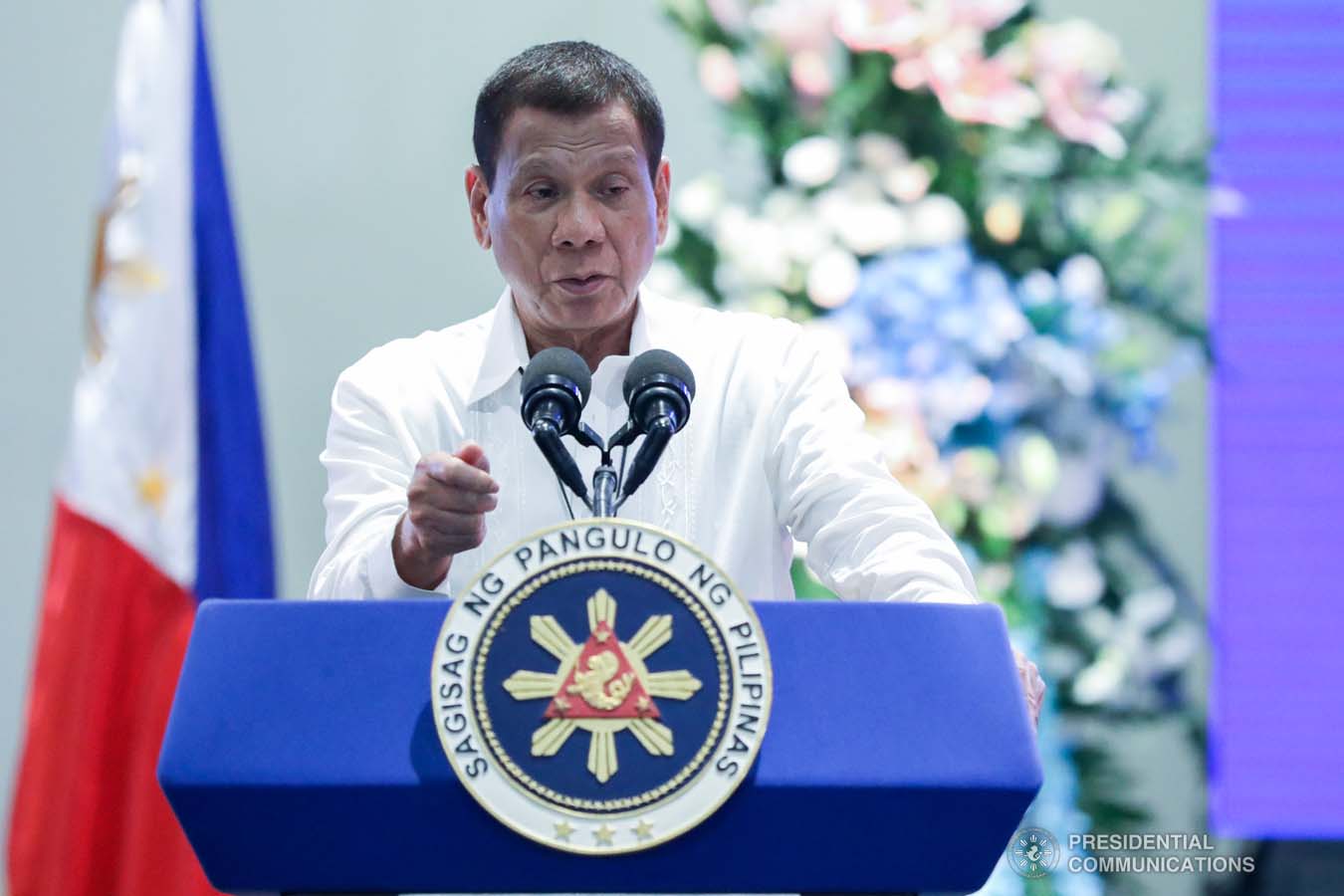Headline
PRRD ok’d P36-B fund for anti-insurgency program: Esperon

“Towards this call, the President, last Cabinet meeting, approved a total of PHP36 billion for 2020 until 2021 and this fund will be used for projects and programs such as farm-to-market roads, water systems, school buildings, health stations, livelihood programs and other programs that will be identified,” Esperon added. (TOTO LOZANO/PRESIDENTIAL PHOTO)
MANILA – President Rodrigo Duterte has granted the National Task Force to End Local Communist Armed Conflict (NTF-ELCAC) around PHP36.439 billion in government funds that will be earmarked for the implementation of programs intended to counter insurgency in the country.
National Security Adviser Hermogenes Esperon Jr., who concurrently serves as vice-chairperson of the NTF-ELCAC, made the announcement during the launching of the “Duterte Legacy” campaign at the Philippine International Convention Center in Pasay City on Friday.
Esperon said the Chief Executive approved the proposed budget by the NTF-ELCAC during the 45th Cabinet meeting held at Malacañan Palace on January 6.
He made the announcement, as he noted that the members of the communist movement or communist terror group (CTG) are infiltrating about 2,379 villages nationwide.
So far, the government was able to clear around 842 rebel-infested villages all throughout the country, Esperon said.
“There remain to be 2,739 barangays (villages) categorized as threatened by CTG’s expansion activities. All of these barangays (villages) need development interventions from the government to clear and protect them from CTG communist terrorist group’s influence,” he said in his speech.
“Towards this call, the President, last Cabinet meeting, approved a total of PHP36 billion for 2020 until 2021 and this fund will be used for projects and programs such as farm-to-market roads, water systems, school buildings, health stations, livelihood programs and other programs that will be identified,” Esperon added.
Around PHP20.150 billion of the PHP36.439-billion budget will be used this year for cleared villages, while the remaining PHP16.288 billion will be appropriated next year for development projects, based on the presentation shown during the event.
Esperon’s presentation showed that the Visayas has 1,043 rebel-infested villages – the highest number recorded by the government.
This is followed by Southern Luzon with 615, Eastern Mindanao with 470, Northern Luzon with 466, Western Mindanao with 77, and Palawan with 68.
On Nov. 23, 2017, the President shelved the government’s peace negotiations with the communists through Proclamation 360 due to a series of attacks waged by NPA rebels against state forces and civilians.
This was followed by Duterte’s signing of Proclamation 374 on Dec. 5, 2017, which brands the CPP-NPA as a terror organization because of their supposed actions “against the Filipino people, against humanity, and against the law of nations.”
Duterte, however, on Dec. 4, 2018, signed Executive Order (EO) 70, institutionalizing the whole-of-nation approach that will be implemented by the NTF-ELCAC, in a bid to attain “inclusive and sustainable peace.”
EO 70 likewise orders local peace bodies to negotiate with communist insurgents in their respective areas.
Duterte, in December 2019, said a possible resumption of talks with the communists would be his “last card.”
On January 4, Duterte acknowledged that the continued existence of communism in the country affects the country’s economic growth.
Communists ‘primary threat’ to Filipinos
Esperon said the government considers the Communist Party of the Philippines (CPP), its armed wing New People’s Army (NPA), and National Democratic Front (NDF) as the “primary political threat” to Filipinos democratic way of life.
Nevertheless, the government is doing its best to address the insurgency problems in the country, he said.
While the possible revival of talks has yet to materialize, Esperon said the conduct of the localized peace engagements continues and remain to be “nationally-orchestrated, directed and supervised.”
“There’s the local peace dialogue. There are also two options for localization. Leaders or members of the CTG may either enter a local level peace agreement with the local peace panel or they may directly avail of the e-CLIP or the enhanced comprehensive integration program,” he said.
The CPP-NPA is listed as a terror group by the United States, European Union, United Kingdom, Australia, Canada, and New Zealand.





















